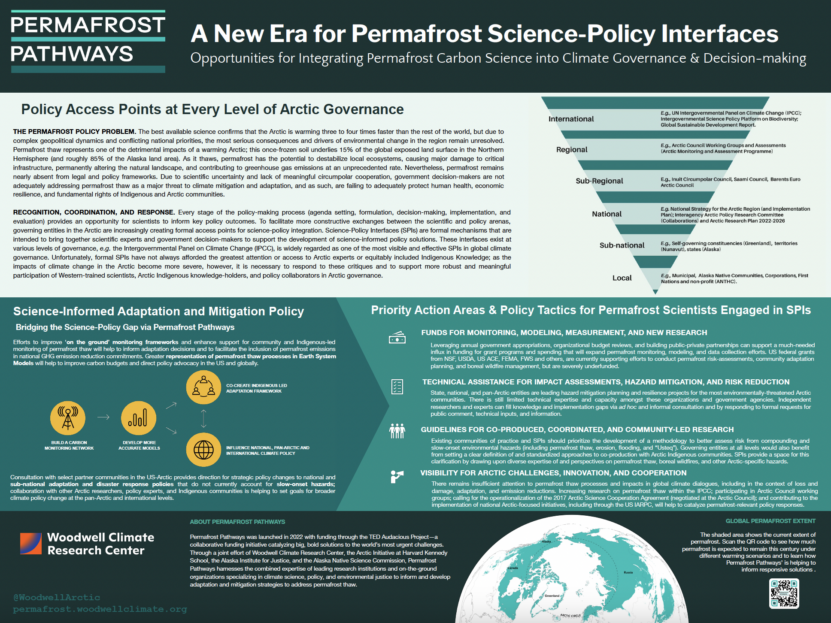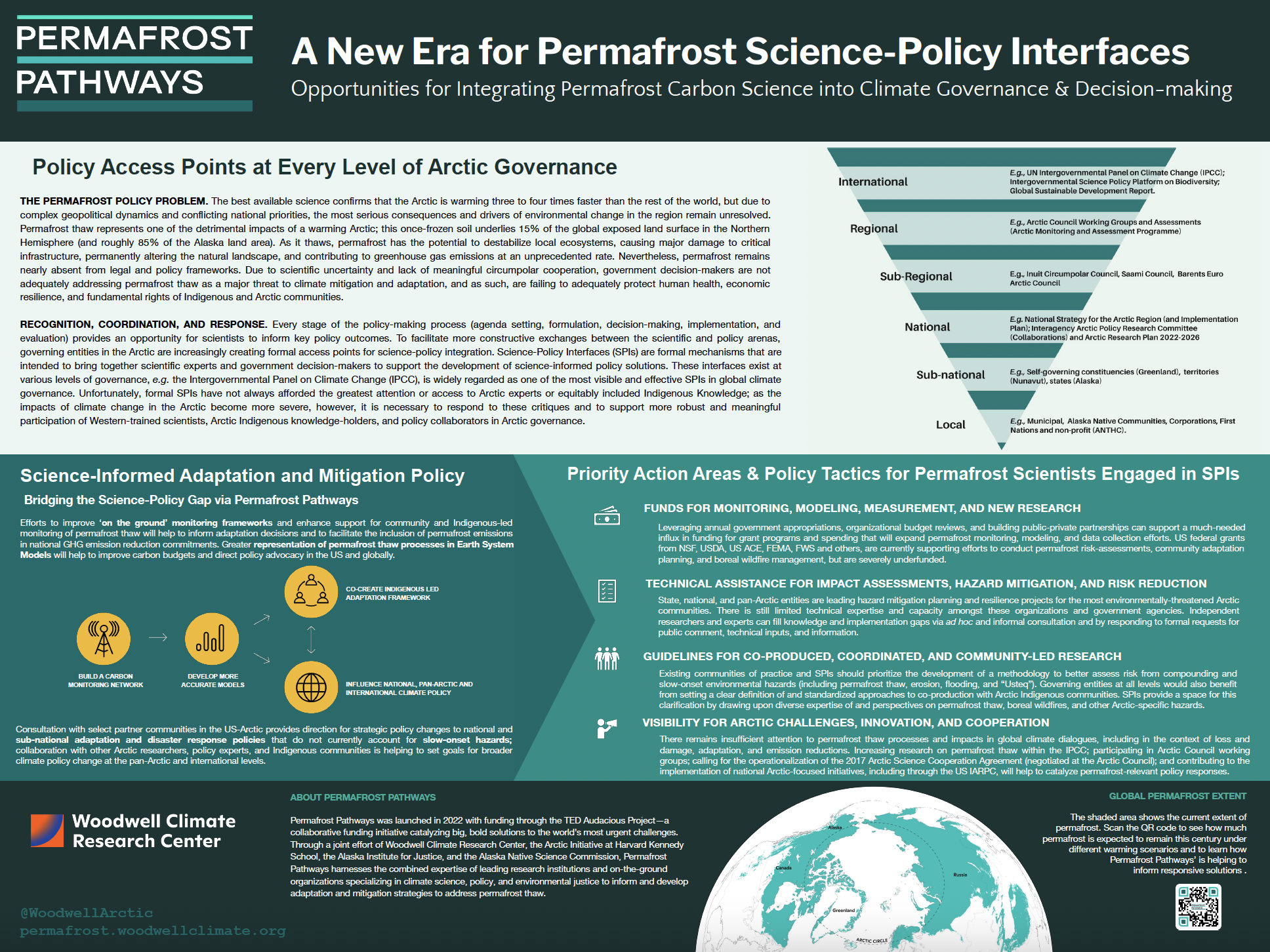A new era for permafrost science-policy interfaces

arcticpolicy@woodwellclimate.org
Opportunities for integrating permafrost carbon science into climate governance and decision-making
The scientific community is increasingly conducting and synthesizing cutting-edge permafrost carbon research that has the potential to advance our understanding of and responses to climate change. Yet there remains an apparent disconnect between permafrost carbon research and appropriately designed policies that urgently and adequately respond to findings. To facilitate more constructive exchanges between the scientific and policy arenas, national governments and regional and international governing bodies have established science-policy interfaces (SPIs). SPIs are formal mechanisms intended to bring together scientific experts and government decision-makers to support the development of science-informed policy solutions. These interfaces exist at various levels of decision-making, e.g. the Intergovernmental Panel on Climate Change (IPCC), is widely regarded as one of the most visible and effective SPIs in global governance. But there remain fundamental barriers to ensuring robust and meaningful participation of scientists, policy experts, and government actors in SPIs, particularly in the Arctic context.
This poster offers a scoping of SPIs that are most relevant to those engaged in permafrost research and identify the challenges and opportunities associated with effective and equitable engagement. The findings are intended to give attendees a clear orientation of the Arctic policy-landscape that would benefit from more regular inputs from the permafrost science community. The presentation will name and assess key entry points for such inputs via existing SPIs, and highlight best practices for strengthening and revitalizing these pathways to inform more responsive policy. Such best practices may include the expansion of multi-disciplinary projects, such as Permafrost Pathways, which brings together a coalition of Western scientists, Indigenous Knowledge holders, policy experts, and other Arctic residents to address thawing permafrost. Those in attendance will be encouraged to think critically about gaps in the climate governance landscape where there remains a need for more holistic permafrost science-policy collaboration.
View AGU 2023 abstract for this poster.
Go to top


